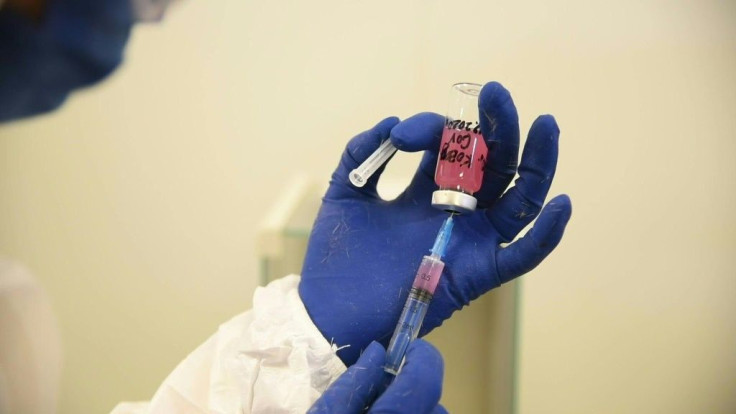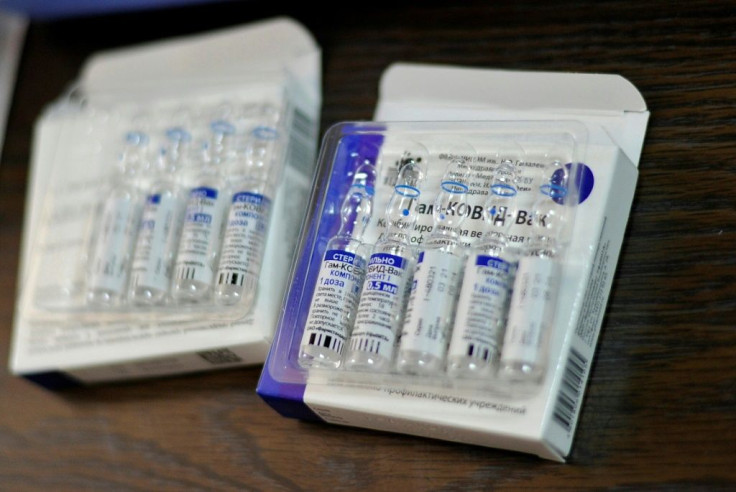COVID-19 Vaccine For Animals Now Available In Russia For $7
KEY POINTS
- Russia has started inoculating animals against COVID-19 with the Carnivac-Cov
- Trials of the vaccine found that it triggered an immune response in 100% of the vaccinated animals
- Russia's agriculture safety watchdog said that it has so far inoculated about 10 cats and dogs
As Russia continues to struggle in administering COVID-19 vaccines to its population, authorities have now added animals to their target groups.
Carnivac-Cov is the country's vaccine for animals against COVID-19 that generates antibodies in dogs, minks, cats and foxes. Sold for 500 rubles, or $7, the doses are administered 21 days apart and have given pet owners a stronger sense of security when it comes to their furry companions, the Wall Street Journal reported.
“I trust in vaccines. They never failed my confidence,” said Elena Yefimova, a 63-year-old woman living in Moscow.
Yefimova expressed her intention to have her pet cat vaccinated because it is young and spends a lot of time outdoors. “I used to have four cats and three dogs, and I always vaccinated them [against other diseases]," she continued.
Although there is no strong evidence to prove that animals play a significant part in spreading the coronavirus to people, authorities have reported massive COVID-19 outbreaks among various species worldwide, especially in mink farms. Outbreaks among dogs, cats and apes have also been found.
Russia's agriculture safety watchdog Rosselkhoznadzor said that it has so far inoculated about 10 cats and dogs. The agency has also distributed 17,000 doses of the Carnivac-Cov vaccine to state and private clinics in several regions across the country, Moscow included.

Breeders and owners of animals that are kept free-range have also expressed interest in the shot since it was authorized in March. Trials done on the animal vaccine found that it was safe and that it triggered an immune response in 100% of the animals who received it, Reuters reported.
Health officials in the country have said that vaccinated animals will have virus-neutralizing antibodies for at least six months.
Since the height of the pandemic, cases of COVID-19 have also been found among several zoo animals, lions and tigers included. In the majority of these cases, authorities suspected that the animals became infected after getting exposed to a human carrying the virus.
While Russia's Carnivac-Cov has been met with a warm welcome, its Sputnik V human vaccine suffers a different fate. Despite the country's large-scale efforts, it still has one of the world's highest levels of vaccine hesitancy.
Only about 11% of Russians have received at least one shot of the COVID-19 vaccine, the Wall Street Journal reported.

© Copyright IBTimes 2024. All rights reserved.





















